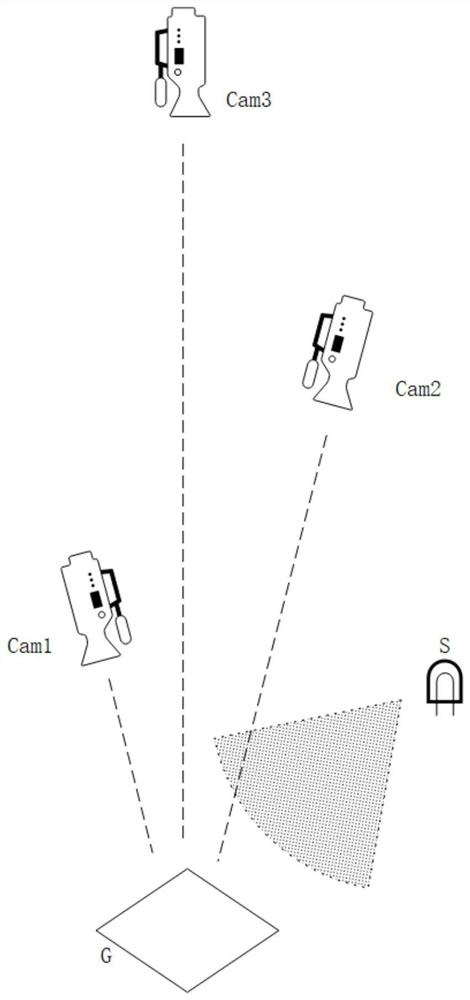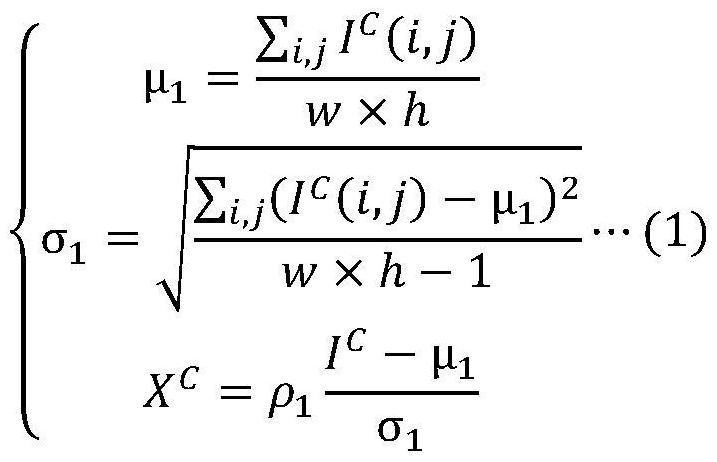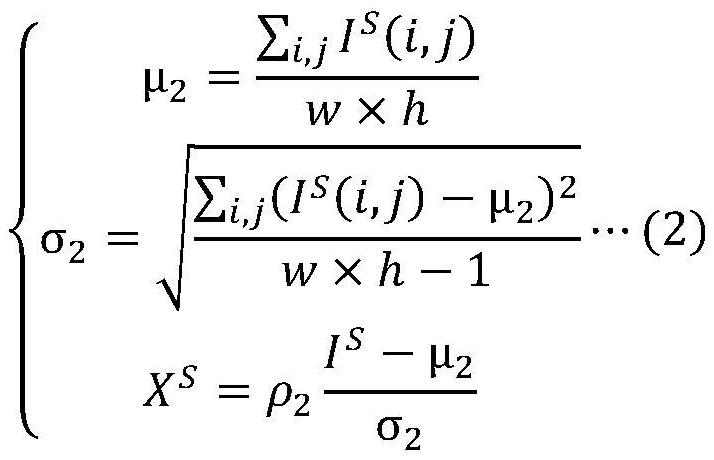Method for detecting content of heavy metals in lettuce based on multi-scale images
A detection method and technology for heavy metals, which are applied in measurement devices, biological neural network models, and color/spectral characteristic measurement, etc., can solve the problems of low detection accuracy, cumbersome operation, and large impact on detection results.
- Summary
- Abstract
- Description
- Claims
- Application Information
AI Technical Summary
Problems solved by technology
Method used
Image
Examples
Embodiment Construction
[0034] A method for collecting and preprocessing optical imaging data described in step 1, using three optical imaging devices independent of the lettuce to be detected, taking images of the lettuce, and transmitting the image to a preprocessing module, through which the original The image is preprocessed to obtain data for subsequent module detection.
[0035] Three optical cameras for filming, mounted as figure 1 shown. The three cameras keep an appropriate distance from the detected object G (lettuce), assuming that the distance between the nearest camera Cam1 and the detected object is L, as an optimal configuration, the distance between the second camera Cam2 and the detected object is approximately set to 2L , the distance between the third camera Cam3 and the object to be detected is approximately set to 3L. As a preferred configuration, the distance of L is about 1 / 8 of the centered area of the detected object in the field of view of the corresponding camera. The ...
PUM
| Property | Measurement | Unit |
|---|---|---|
| wavelength | aaaaa | aaaaa |
Abstract
Description
Claims
Application Information
 Login to View More
Login to View More - R&D
- Intellectual Property
- Life Sciences
- Materials
- Tech Scout
- Unparalleled Data Quality
- Higher Quality Content
- 60% Fewer Hallucinations
Browse by: Latest US Patents, China's latest patents, Technical Efficacy Thesaurus, Application Domain, Technology Topic, Popular Technical Reports.
© 2025 PatSnap. All rights reserved.Legal|Privacy policy|Modern Slavery Act Transparency Statement|Sitemap|About US| Contact US: help@patsnap.com



